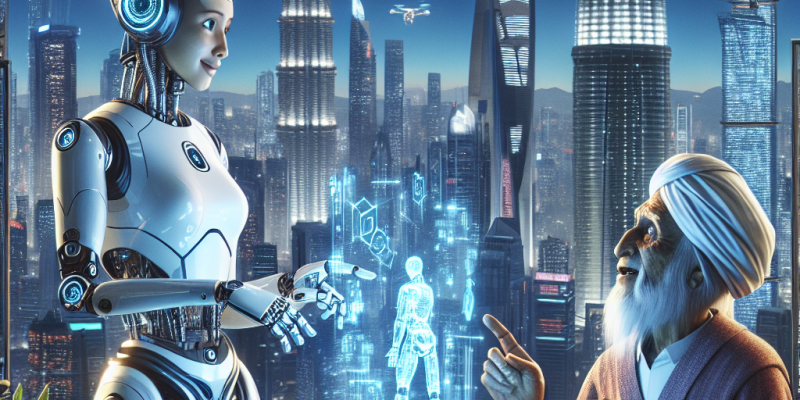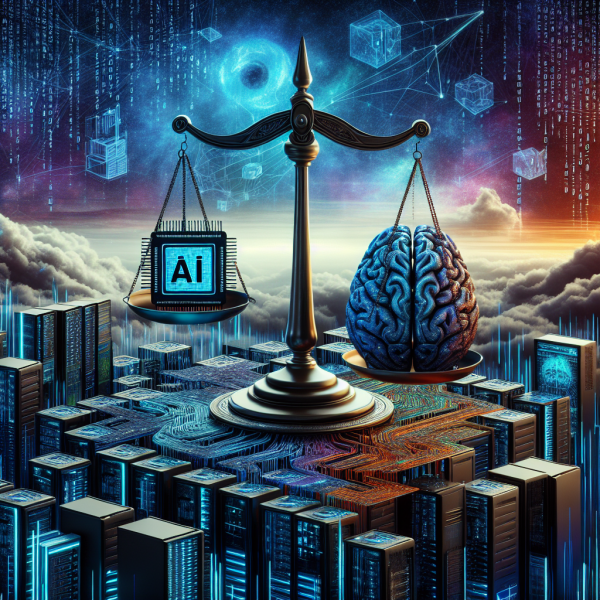From Science Fiction to Reality: AI’s Role in Shaping Our Future

From Science Fiction to Reality: AI’s Role in Shaping Our Future
For decades, science fiction has captivated our imaginations with visions of life governed by intelligent machines. From Isaac Asimov’s "I, Robot" to the futuristic landscapes of Philip K. Dick’s works, the genre has been a fertile ground for exploring the ethical, societal, and existential implications of artificial intelligence (AI). Today, we stand at the precipice of a new era where many of the fanciful ideas once confined to the pages of novels are becoming a tangible reality. As AI technology continues to advance, its role in shaping our future is turning from merely speculative to deeply transformative.
The Current Landscape of AI
AI has evolved significantly since the early days of computer science. Initially characterized by rule-based systems and simple algorithms, today’s AI technologies are powered by machine learning, deep learning, and neural networks. The ability of machines to learn from vast amounts of data and make decisions with minimal human intervention has opened new possibilities across diverse sectors—healthcare, finance, education, and entertainment, to name a few.
In healthcare, for instance, AI algorithms can analyze medical images, assist in diagnostics, and predict patient outcomes with remarkable accuracy. In finance, AI-driven algorithms can process market trends and make investment predictions faster than any human could. Online educational platforms leverage AI to create personalized learning experiences tailored to individual students’ needs. These advancements illustrate that AI is not merely a futuristic concept, but a technological force already shaping various facets of our lives.
AI and the Workforce
While the integration of AI into our everyday lives promises increased efficiency and productivity, it also raises important questions about the future of work. Many routine and repetitive jobs are at risk of being automated, leading to fears of job displacement. However, history shows that technological revolutions have always created new types of employment, even as they render older jobs obsolete.
The challenge lies in managing this transition. Upskilling and reskilling the workforce will be crucial in preparing individuals for an AI-driven economy. Countries and organizations must invest in education and training programs to equip workers with the skills needed in a landscape where collaboration between humans and machines becomes the norm. Moreover, new job roles focused on AI development and oversight will emerge, paving the way for a more dynamic workforce.
Ethical Considerations and Governance
As AI technologies continue to evolve, so too do the ethical considerations surrounding their use. Concepts like bias in AI algorithms, data privacy, and the use of AI in decision-making processes are all critical issues that require careful deliberation. The risk of perpetuating societal inequalities through biased algorithms highlights the need for transparency and accountability in AI systems.
Governance will play a pivotal role in ensuring that AI benefits all segments of society. Policymakers and industry leaders must work collaboratively to establish regulations that safeguard human rights while fostering innovation. The development of ethical guidelines and frameworks will be essential in ensuring that AI serves humanity rather than undermines it.
The Human-Machine Partnership
One of the most exciting aspects of the current AI revolution is the potential for partnership between humans and machines. Rather than viewing AI as a replacement for human intelligence, it can be understood as a complementary tool that enhances our capabilities. From advanced data analysis that aids decision-making to virtual assistants that help manage our daily tasks, AI can elevate human productivity and creativity.
This human-machine collaboration offers the promise of unprecedented innovations in research, development, and creative industries. AI is already being used to assist with everything from drug discovery to artistic endeavors, pushing the boundaries of what is possible. The future will likely see the convergence of human ingenuity and AI capabilities, leading to solutions for some of the world’s most pressing challenges.
Conclusion
As we navigate the journey from science fiction to reality, it is clear that AI will play a central role in shaping the future. Its impact will be felt across all sectors of society and will challenge us to rethink our relationship with technology. By embracing the possibilities that AI offers while proactively addressing its ethical challenges, we can harness its potential to create a more prosperous, equitable, and sustainable future. In the end, the story of AI is not just one of machines; it is a story about humanity’s aspirations, creativity, and resilience in the face of change. The adventure has only just begun.














